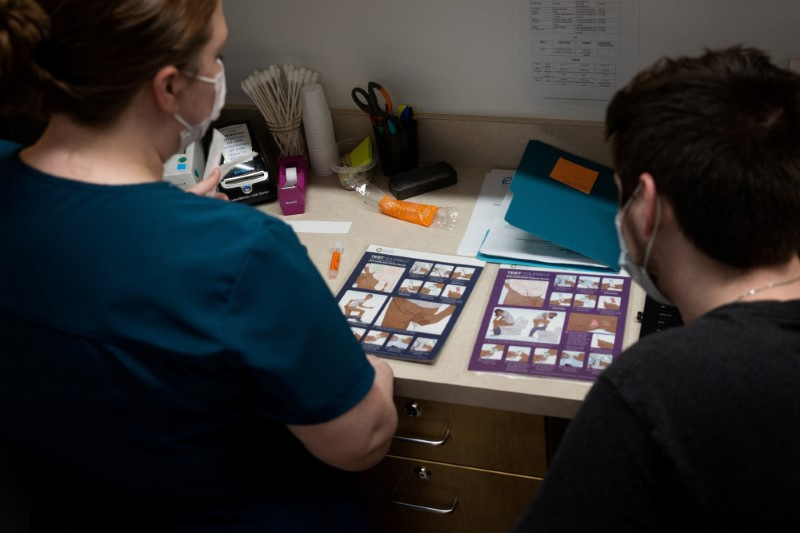By Daniel Trotta
(Reuters) -A U.S. judge on Monday blocked the state of Idaho at least temporarily from prosecuting doctors who refer patients out of state to get an abortion, finding that would violate a medical provider's right to free speech.
U.S. District Court Judge B. Lynn Winmill agreed with a challenge led by Planned Parenthood that Republican Attorney General Raul Labrador's interpretation of the state's criminal abortion law was "chilling" to providers' First Amendment rights.
Idaho's abortion ban calls for revoking the license of any healthcare professional who assists in performing an abortion. Labrador interpreted the word "assists" as prohibiting an Idaho medical provider from referring a woman across state lines for an abortion.
But the judge found Labrador's interpretation went too far and enjoined him from prosecuting such cases until an underlying legal challenge to the abortion law is settled in court.
"The Court finds that the Medical Providers have established that there is a genuine threat of prosecution. This threat has resulted in the chilling of the Medical Providers' speech - a well-established concrete injury," wrote Winmill, who was appointed by Democratic then-President Bill Clinton.
Planned Parenthood and two doctors, known in the suit as the Medical Providers, sued in April to block the punishment, arguing the law violates the U.S. Constitution by prohibiting protected free speech and attempting to extend Idaho law beyond its borders.
Beth Cahill, a spokesperson for Labrador, said Winmill's ruling was predictable.
"In his 28-year career you'd be hard-pressed to find a time when Judge Winmill has ruled against Planned Parenthood, so his decision is not surprising. Judge Winmill wants to restrain a power we don't possess. We strongly disagree with his order," Cahill said in a statement.

Idaho banned abortion shortly after the U.S. Supreme Court last year overturned the guaranteed a right to abortion nationwide, mandating a prison sentence of two to five years for a convicted provider.
The law allows a provider charged with performing an illegal abortion to overcome the charge by proving it was needed to save the mother's life, or resulted from rape reported to law enforcement.